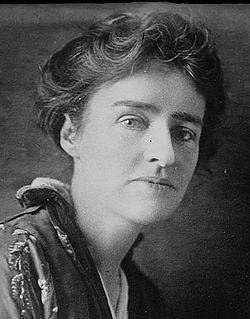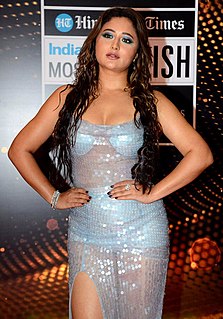A Quote by James McBride
When my mother left home, her family sat shivah for her, more because my father was not Jewish than because he was black.
Related Quotes
The adolescent does not develop her identity and individuality by moving outside her family. She is not triggered by some magic unconscious dynamic whereby she rejects her family in favour of her peers or of a larger society.... She continues to develop in relation to her parents. Her mother continues to have more influence over her than either her father or her friends.
Her kitsch was the image of home, all peace, quiet, and harmony, and ruled by a loving mother and a wise father. It was an image that took shape in her after the death of her parents. The less her life resembled the sweetest of dreams, the more sensitive she was to its magic, and more than once she shed tears when the ungrateful daughter in a sentimental film embraced the neglected father as the windows of the happy family's house shone out into the dying day.
Her [Eleanor Roosevelt] father was the love of her life. Her father always made her feel wanted, made her feel loved, where her mother made her feel, you know, unloved, judged harshly, never up to par. And she was her father's favorite, and her mother's unfavorite. So her father was the man that she went to for comfort in her imaginings.
I mean, her father was an alcoholic, and her mother was the suffering wife of a man who she could never predict what he would do, where he would be, who he would be. And it's sort of interesting because Eleanor Roosevelt never writes about her mother's agony. She only writes about her father's agony. But her whole life is dedicated to making it better for people in the kind of need and pain and anguish that her mother was in.
When my daughter went to school, her last name was mine. The school insisted that her father's name be added to hers, not her mother's. The fact that the mother kept her in her womb for nine months is forgotten. Women don't have an identity. She has her father's name today and will have her husband's tomorrow.
The woman who fights against her father still has the possibility of leading an instinctive, feminine existence, because she rejects only what is alien to her. But when she fights against the mother she may, at the risk of injury to her instincts, attain to greater consciousness, because in repudiating the mother she repudiates all that is obscure, instinctive, ambiguous, and unconscious in her own nature.
Victory in defeat, there is none higher. She didn't give up, Ben; she's still trying to lift that stone after it has crushed her. She's a father working while cancer eats away his insides, to bring home one more pay check. She's a twelve-year-old trying to mother her brothers and sisters because mama had to go to Heaven. She's a switchboard operator sticking to her post while smoke chokes her and fire cuts off her escape. She's all the unsung heroes who couldn't make it but never quit.
The day after his father left, Franz and his mother went into town together, and as they left home Franz noticed that her shoes did not match. He was in a quandary: he wanted to point out the mistake, but was afraid he would hurt her. So, during the two hours they spent walking through the city together he kept his eyes focused on her feet. It was then he had his first inkling of what it means to suffer.
Because no, I didn’t push her away. I didn’t add to her pain or do anything to hurt her. Instead, I left her alone in that room. The only person who might’ve been able to reach out and save her from herself. To pull her back from wherever she was heading. I did what she asked and I left. When I should have stayed.


































